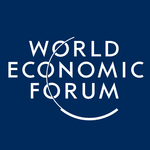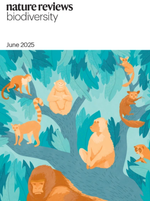The Oxford Martin Programme on
The Future of Food

The Challenge
A significant overhaul of the current global food system is needed to meet the challenges of feeding a growing world population in a healthy, equitable, sustainable and resilient way.
The future of food programme links together research on the food system at Oxford and facilitates solution-orientated research to address these major concerns. The research includes scientific, economic, social and environmental issues of food production and consumption, as well as how food affects health, sustainability and economic development.
By integrating existing research, supporting new interdisciplinary initiatives, and facilitating interactions between academia, government, civil society and the private sector, we provide fresh insights and propose effective action to address the challenges of feeding the global population.
latest news
View allGlobal food systems driving twin crises of obesity and global heating
A major review in Frontiers in Science warns that unsustainable food systems pose an urgent threat to both human health and the climate.
Why has the price of chocolate become so volatile?
Dr Tonya Lander, Stipendiary Lecturer at Christ Church and researcher at the Oxford Martin School Programme on the Future of Food, explains the diverse factors that impact the price of chocolate, and what measures could help improve the long-term resilience and stability of this global market that supports millions of livelihoods.
Reforming the UK food system isn’t just an imperative, it’s an opportunity
Speaking at a first-of-its-kind National Emergency Briefing on climate change, Professor Paul Behrens outlines the urgent need to reform the UK food system – and the diverse benefits this would bring for farmers, the public and nature.
What we told UK leaders about climate and nature at a national emergency briefing
In the press

Ecosystem destruction will force the UK to tackle food security

How to avoid food security crises in Africa’s megacities

Five factors driving up chocolate prices

Emergency response needed to prevent climate breakdown, warn experts

Climate action saves lives. So why do climate models ignore wellbeing?

Earth has now passed peak farmland. What's next?

This burger was made in a lab from cow cells… Should it really be served in restaurants?

EU’s ‘chocolate crisis’ worsened by climate breakdown, researchers warn

The Way We Eat Is About To Change — Whether We Like It Or Not
Publications
View all
Stranded assets in European agriculture during food system transformations

Inclusion of wellbeing impacts of climate change: a review of literature and integrated environment–society–economy models

Food systems boundaries are currently poorly defined

The changing pressures on global croplands

Water temperature regulations could help to balance biodiversity and energy security

Context is key to understand and improve livestock production systems

The environmental and social opportunities of reducing sugar intake

A comprehensive Beyond-GDP database to accelerate wellbeing, inclusion, and sustainability research

Opportunities to produce food from substantially less land
people
View allCharles Godfray
Director, Oxford Martin School
Susan Jebb
Professor of Diet and Population Health
Tara Garnett
Director of Table
Marco Springmann
Professorial Research Fellow in Climate Change
Sarah Harper
Director, Oxford Institute of Population Ageing
Mike Rayner
Professor of Population Health
Jim Hall
Professor of Climate and Environmental Risks
Peter Scarborough
Professor of Population Health
Stanley Ulijaszek
Professor of Human Ecology
Michael Clark
Associate Professor in Sustainable Food Solutions
Joseph Poore
Researcher
Lexi Earl
Programme Manager
Patricia Clavin
Professor of Modern History
Paul Behrens
British Academy Global Professor
Charles Spence
Professor of Experimental Psychology & Director, Crossmodal Research Laboratory
upcoming events
Keep in touch
If you found this page useful, sign up to our monthly digest of the latest news and events
Subscribe